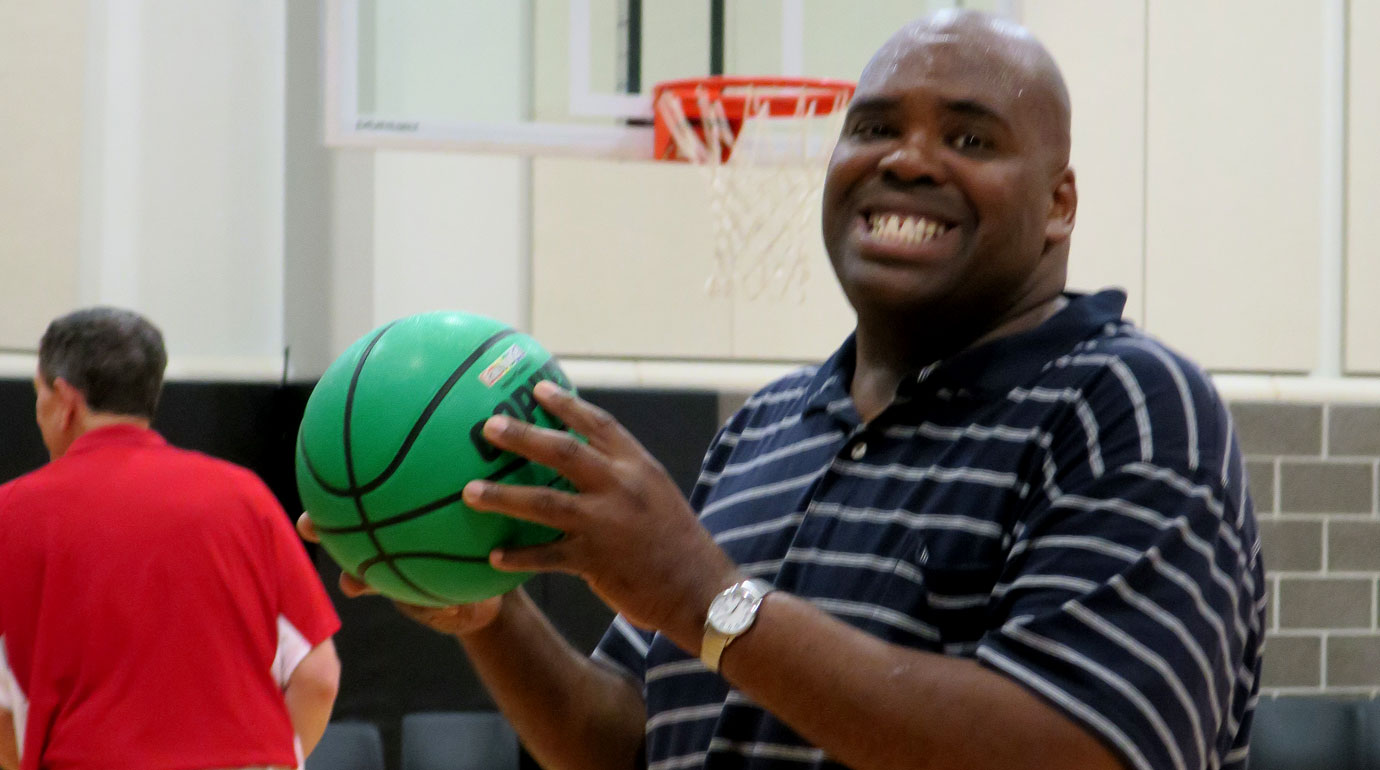Learn more about how to begin a disability ministry in the related story, Celebrating diversity: Welcoming all abilities.
People with disabilities, and the caregivers that surround them, seek ways to connect with accessible, loving communities. Whether your church has an established disability ministry or you are just getting started, extending a message of welcome and acceptance will help your ministry thrive.
Here are four ways to reach out to the disability community in your town:
1. Activities for kids
-
Vacation Bible School is a great opportunity to offer accessibility for all. Consider creating a sensory-friendly, safe space for children who might be overwhelmed by the large group gatherings and activities, or recruit volunteers who can serve as “buddies” for kids who might need some extra help.

A basketball player enjoys the recreation ministry at The Woodlands United Methodist Church. Photo courtesy of The Woodlands UMC.
- If your church has a gym or an existing recreation ministry, create a regularly scheduled activity for those with disabilities. This could be flag football, basketball, bowling, cheerleading — any sport that can be adapted so that everyone can participate, enjoy themselves and be part of a team.
2. Dance the night away
Hosting a special event is a great way to build awareness that your church offers an ongoing, multi-age disability ministry.
For example, Mount Pisgah United Methodist Church in Johns Creek, Georgia, hosts a “Dream Big Dance” for special needs teenagers.
“Many of those in the disability community never get to experience ‘rites of passage’ that others experience, such as going to a dance or prom. The idea is to give those in the disability community the opportunity to have an evening of fun, filled with dancing, joy and food. It is a prom-like atmosphere with red carpet welcoming the community, professional photographers taking pictures, catered food from a five-star restaurant, a band and a dance floor,” says Stephen Taylor, special needs ministry pastor at Mount Pisgah.
According to Taylor, “What makes [the dance] different is that each participant is paired with a dance partner. Individuals aged 16 and older with any disability are welcome to attend. Many attend with tears in their eyes because they have never had this opportunity.”
3. Offer respite
- Parents and caregivers also need care. Host a respite event for a few hours on a weekend afternoon or evening to offer caregivers a chance to run errands, go out to dinner and recharge. Plan games, crafts and other appropriate activities to make the event a fun, community-building occasion that families will want to experience again and again.
- Gathering for quiet reflection and prayer can also be the perfect chance for caregivers to find peace. Form a small Bible study group specifically for caregivers so that they have a safe space to connect with others in similar situations and to study God’s word.
4. Community awareness
Increasing awareness of the events and services you offer through your disability ministry is key. This could be as easy as:
- Posting fliers at pediatricians’ offices;
- Attending events held by area school district parent resource centers;
- Researching the groups that meet in your community, such as an autism support group, and sending them information;
- Boosting a Facebook post highlighting your ministry offerings;
- Contacting local television and newspaper reporters to request that they cover your story.
Once your ministry begins to serve families and they feel the love of Christ in your church, they will begin to invite others to be a part of your supportive, accepting community.
Special thanks to the Rev. Joy Johnston and Chris Robbins, special needs ministry leaders at The Woodlands UMC, for contributing to this article.
*Laura Buchanan is Senior Creative Content Specialist at United Methodist Communications.

